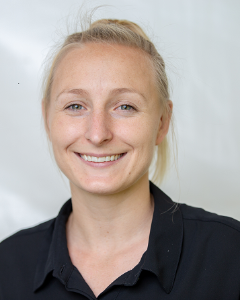Introduction
The year 2011 marks a six-year anniversary of the legal reintroduction of multiparty democracy in Uganda after the referendum held in 2005. This according to the country’s electoral cycle implies that a second multiparty general election takes place, following the first one held in 2006. Such a period is to be recognised as a milestone particularly in a country still working on several aspects of democratic consolidation, building and strengthening political pluralism being one of them.
The Konrad-Adenauer-Stiftung considers this publication as being one of the ways to recognise and celebrate six years since the reintroduction of political pluralism in Uganda. The book Reality Check: The State of Multiparty Democracyin Uganda is an outcome of a symposium on the subject held in Kampala in October 2010. It brought together academicians, politicians and civil society actors as a platform for meaningful dialogue regarding the advances of and challenges to multiparty democracy in the country. In this publication the papers as contributed by academic experts and political actors are presented together with some general introductions and a synthesis of the discussions that transpired.
While the dialogue at the symposium covered a range of issues, the main contributions and synthesis of the discussions have been organised along two main themes: The first theme which is the part one of this publication focuses on ‘the institutional political system and environment’ where the main topics are:
- the extent to which Uganda has transited from the movement system to a multiparty state;
- the checks and balances to power and how far these are sufficient to ensure successful multi-party democracy;
- the extent to which a political level playing field been established.
Part two of the publication focuses on the political actors operating within the environment. In this context it is analysed to what extent the political opposition presents a viable alternative for effective governance.
The symposium and this publication all come at a time when a reflection about the state of Uganda’s multi-party democracy is both timely and relevant. This relevance goes beyond celebrating six years since the reintroduction of multiparty democracy. It is also to be noted that - as the second multiparty elections are held - a debate on the advances and challenges of the political system is relevant to guide yet another decisive step in the maturation process of democracy.Much as the new multiparty dispensation is still rather young, the experiences Ugandans have with multiparty politics date back to the times shortly after independence. There have been several expressions both in literature and the political rhetoric within Uganda that these early experiences are not something that make the people look back in pride. Instead, the challenges that were experienced in the past remind all stakeholders of the fragility of an open and competitive political system and its reliance on committed, responsible and credible actors on all sides and at all levels.
This book is prepared as a reference point for scholars, policy makers and political actors desirous to gain a deeper insight into the salient issues of multiparty democracy for the second time it is practiced in Uganda. Dr. Sabiti Makara and Dr. Yasin Olum who present the main contributions in the first part are renowned political science scholars. They have proved their credence once again by clearly interlinking theory and practice in an assessment of the political environment. On the other hand, Mr. Awel Uwihanganye and Mr. Omar Kalinge Nyago tap on their political experience to analyse the political actors. Both parts have a general introduction presented by KAS officers Mathias Kamp and Yusuf Kiranda respectively, whose vast experience working on democracy promotion in Uganda is clearly reflected in their contributions. With such a team of experienced contributors the content is expected to be enriching. Special thanks go to Max Walter, who was not only involved in the conceptualization of the symposium and the publication but also provided the idea for the title “Reality Check”.
You can download the whole report as pdf.
About this series
The series analyses developmental challenges in the political, social and economic sphere in Uganda. The editions examine hot topics of the daily political agenda and undertake a rigorous reality check. Reality Check is published in cooperation with Centre for Development Alternatives.
Order details
Editor
Konrad-Adenauer-Stiftung e. V.
ISBN
978 9970 153 03 9



